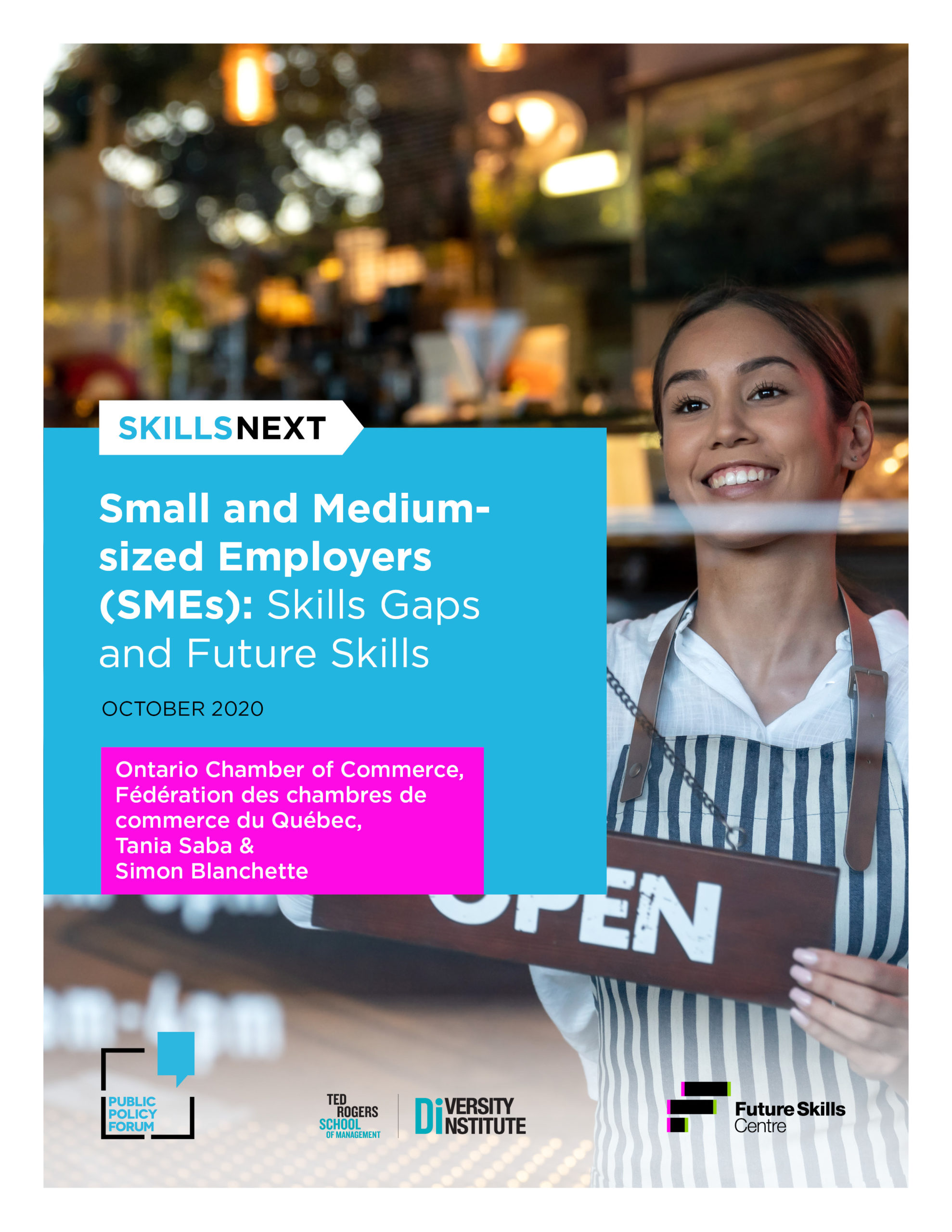
Small and Medium-sized Employers (SMEs): Skills Gaps and Future Skills
Series | Skills NextKey Takeaways
- 40% of SMEs studied in 2019 identified skills shortages as a major competitive challenge, up 4% from the year before.
- SMEs facing labour shortages are 43% more likely to experience low growth, requiring their employees to work longer hours and incurring delays in services rendered.
- The need to further analyze the situation of skills shortages for SMEs in Canada is clear. It is paramount to clarify what skills are needed by organizations to be more agile and competitive. And it’s key to develop proper HR practices that will allow for better recruitment, training (formal and informal) and retention of talent.
Executive Summary
Small and medium-sized enterprises (SMEs), which typically employ fewer than 500 employees, are the backbone of the Canadian economy, accounting for more than 90% of jobs in the private sector. Yet they face critical labour shortages and skill gaps that threaten their competitiveness—both with larger organizations and other businesses globally.
For many years, and across the country, SMEs have identified talent shortages. Surveys by different organizations repeatedly show SMEs reporting access to talent as a critical competitive issue. At the same time, there is limited data on the specific skills needed which vary across sectors and regions of the country.
There is also evidence that SMEs face challenges in the processes that they employ to hire, retain and train talent. Often they lack the HR professionals and resources needed to support recruitment of highly skilled workers or for training, retraining and upskilling existing employees. Some research also suggests they face challenges in retaining talent. In addition, there is evidence that SMEs often present more barriers to women and diverse employees in part because of their heavy dependence on informal processes for recruitment. SMEs are ill equipped to comply with growing regulatory requirement such as Bill C-25, an Act to Amend the Canadian Corporations Act which requires additional reporting regarding diversity on boards and in leadership roles as well as strategies to improve representation.
Finally, SMEs have been hardest hit by COVID 19, especially smaller businesses and those in the services sectors. While some are cautiously optimistic about recovery, the impact it will have on skills and employment in the sector is not at all clear. This report explores the current knowledge concerning approaches to skills among Canadian SMEs as well as the areas for further research.









